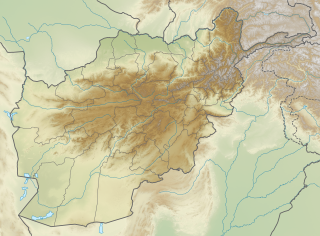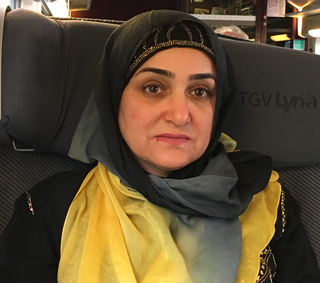Battle of Kunduz may refer to:
Battle of Kunduz may refer to:

Kunduz is a city in northern Afghanistan, the capital of Kunduz Province. The city has an estimated population of about 268,893 as of 2015, making it about the 7th-largest city of Afghanistan, and the largest city in northeastern Afghanistan. Kunduz is in the historical Tokharistan region of Bactria, near the confluence of the Kunduz River with the Khanabad River. Kunduz is linked by highways with Kabul to the south, Mazar-i-Sharif to the west, and Badakhshan to the east. Kunduz is also linked with Dushanbe in Tajikistan to the north, via the Afghan dry port of Sherkhan Bandar.

Kunduz or Qunduz is one of the 34 provinces of Afghanistan, located in the northern part of the country next to Tajikistan. The population of the province is around 1,136,677, which is mostly a tribal society; it is one of Afghanistan's most ethnically diverse provinces with many different ethnicities in large numbers living there. The city of Kunduz serves as the capital of the province. It borders the provinces of Takhar, Baghlan, Samangan and Balkh, as well as the Khatlon Region of Tajikistan. The Kunduz Airport is located next to the provincial capital.
Sher Khan or Shir Khan may refer to:
A doorman, also known as doorkeeper, is someone who is posted at, and often guards, a door, or by extension another entrance. Specific uses include:

Kunduz Airport is a public and military airport located 5 miles (8 km) south-southeast of Kunduz, a city in Kunduz Province in Afghanistan. It is also 9 miles (14 km) west of Khan Abad, 25 miles (40 km) south of the Oxus River, and 33 miles (53 km) south of the Tajikistan border.

Chārdara District is one of the seven districts in Kunduz Province in northern Afghanistan. It is situated in the south-west part of Kunduz Province and has borders with Qalay-I-Zal District to the north-west, Kunduz District to the north-east, Ali Abad District to the south-east, Baghlan Province to the south and Samangan Province to the south-west.
The Nasher are a noble Afghan family and Khans of the Pashtun Kharoti (Ghilji) tribe. The family is originally from Qarabagh, Ghazni but founded modern day Kunduz in the early 20th century and lived there until the end of the Barakzai dynasty in the late 20th century. Members of the family now live in the United States, in the United Kingdom, Canada, Denmark and in Germany.

The Kunduz airlift, also called the Airlift of Evil, refers to the evacuation of hundreds of top commanders and members of the Taliban and their Pakistani advisers including Pakistani Inter-Services Intelligence agents and army personnel, and other Jihadi volunteers and sympathizers, from the city of Kunduz, Afghanistan, in November 2001 just before its capture by U.S. and United Front of Afghanistan forces during the War in Afghanistan. The Taliban and Al-Qaeda combatants were allegedly evacuated from Kunduz and airlifted by Pakistan Air Force cargo aircraft to Pakistan Air Force bases in Chitral and Gilgit in Pakistan-administered Kashmir's Northern Areas. The United States and Pakistan denied that the airlift took place. General Richard Myers, Chairman of the Chiefs of Staff, said that the Kunduz airfield had been disabled by United States attacks. Donald Rumsfeld, US defense secretary, said on December 2 that "neither Pakistan nor any other country flew any planes into Afghanistan to evacuate anybody".
Xanabad or Khanabad may refer to:
Operation Oqab was a military operation conducted by ISAF and Afghan National Army troops, in July 2009, with the objective to force the Taliban out of Kunduz Province.
The 2015 Kabul Parliament attack occurred on June 22, 2015, when members of the Taliban detonated a car bomb outside the National Assembly in Kabul then attacked the building with assault rifles and RPGs. Two civilians and seven Taliban died in the attack.

The Battle of Kunduz took place from April to October 2015 for control of the city of Kunduz, located in northern Afghanistan, with Taliban fighters attempting to seize the city and displace Afghan security forces. On 28 September 2015, the Taliban forces suddenly overran the city, with government forces retreating outside the city. The capture marked the first time since 2001 that the Taliban had taken control of a major city in Afghanistan. The Afghan government claimed to have largely recaptured Kunduz by 1 October 2015 in a counterattack, although local sources in the city disputed the claim made by government officials.

On 3 October 2015, a United States Air Force AC-130U gunship attacked the Kunduz Trauma Centre operated by Médecins Sans Frontières in the city of Kunduz, in the province of the same name in northern Afghanistan. 42 people were killed and over 30 were injured. Médecins Sans Frontières condemned the incident, calling it a deliberate breach of international humanitarian law and a war crime. It further stated that all warring parties had been notified about the hospital and its operations well in advance.
Kunduz airstrike can refer to:

Operation Halmazag was an offensive operation by ISAF German-led troops in close cooperation with the Afghan security forces in the province of Kunduz, from 31 October to 4 November 2010, with the aim of building a permanent outpost near the village of Quatliam in the Char Dara district, south-west of Kunduz. The operation was the first German military ground offensive since World War II.

The Battle of Kunduz occurred on 3 October 2016 in the Afghan city of Kunduz between Afghan National Security Forces and Taliban insurgents. It occurred exactly a year after the 2015 battle when the Taliban briefly controlled the city.

The Battle of Boz Qandahari occurred on 3 November 2016, in the village of Boz Qandahari, on the western outskirts of the Afghan city of Kunduz, between Afghan National Army Commandos alongside United States Army Special Forces against Taliban insurgents.

Fatima Aziz was an Afghan physician and politician. In 2005, she was elected to the lower house of parliament as representative of Kunduz province in Afghanistan's first free parliamentary election in decades. She was re-elected in the 2010 and 2018 elections. She served as an MP until her death from cancer in 2021.

The capture of Zaranj, the capital of Nimruz Province, Afghanistan, occurred on 6 August 2021. According to the local officials, only the National Directorate of Security (NDS) and its forces had put up a fight against the Taliban, but they too eventually surrendered to the Taliban. Local officials had been requesting for reinforcements but received no response. Zaranj was the first provincial capital to be taken by the Taliban in their 2021 offensive and the first one to be captured since Kunduz in 2016.
The Battle of Kunduz was a battle between the Afghan National Security Forces (ANSF) and the Taliban for control of the city of Kunduz. The fighting started in late June and lasted until the city was overrun by the Taliban on 8 August. The Afghan government forces, defending the city, withdrew to 217 Pamir Corps headquarters and airport within in the city. After resisting for three days, an entire 217 Pamir Corps had surrendered, allowing Taliban to take control of the airport and a number of military vehicles and tanks stationed inside the headquarters.